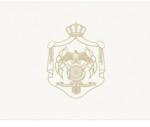You are here
Poll has troubling news about state of affairs in Tunisia and Egypt
Dec 24,2018 - Last updated at Dec 24,2018
Eight years after the unfolding of the events of the "Arab Spring", Tunisians and Egyptians appear deeply displeased about the situations in their respective countries. When asked whether their countries were moving in the right or wrong direction, only one in five Tunisians and Egyptians said "right direction", while 69 per cent of Tunisians and 55 per cent of Egyptians said their countries were moving in the "wrong direction".
This is just one of the findings of a September 2018 comprehensive public opinion poll in eight Arab countries, as well as Turkey and Iran, by Zogby Research Services (ZRS). The survey was conducted for the annual Sir Bani Yas Forum in the United Arab Emirates. While, in future articles, I will be reporting on other major findings from this ZRS poll, the dissatisfaction of Tunisians and Egyptians was especially significant.
When asked whether respondents felt they were better off or worse off than they had been five years ago, only 21 per cent of Tunisians and 20 per cent of Egyptians said "better off", while 59 per cent of Tunisians and 64 per cent of Egyptians claimed they were "worse off". It is important to note that when we polled in both countries five years ago, 94 per cent of Tunisians and 85 per cent of Egyptians told us that they had been "hopeful that their countries were on the right track" after the revolts succeeded in toppling their regimes.
Over the next few years, attitudes in Tunisia gradually became more tempered. The mood changes registered by Egyptians, on the other hand, were more volatile. By May of 2013, only 36 per cent of Egyptians said they were hopeful. But after the Tamarrud events of June 2013, that number rose to 68 per cent who said they were optimistic that the country was on the "right track". By the end of 2014, however, only 41 per cent were hopeful. Therefore, the precipitous drop to just one in five, 20 per cent in Tunisia and 19 per cent in Egypt, who feel they are moving in the right direction must be seen as worrisome. It is worth noting that in other polling conducted by ZRS, we have found that there is a strong correlation between those who say "wrong direction" and individuals who demonstrate sympathy with extremist movements.
This lack of optimism and satisfaction among Tunisians and Egyptians can also be seen in their expressed lack of confidence in their basic institutions. For example, in this year's poll, we asked respondents how much confidence they had in their military, police, judiciary, religious establishment, media and parliament.
Tunisian confidence levels were extremely low in each of the institutions under scrutiny. Only 33 per cent had confidence in their military, 26 per cent in the police, 41 per cent in the judiciary, 15 per cent in their religious establishment, 10 per cent in the media and only 25 per cent in the parliament.
The Egyptian confidence levels were not much better: 41 per cent in their military, 37 per cent in the police, 39 per cent in the judiciary, 50 per cent in the religious establishment, 28 per cent in the media and only 27 per cent in the parliament.
What is especially significant here is the precipitous drop in confidence Egyptians now have in their military. In polls we conducted in 2013, right before and shortly after the military had deposed the Muslim Brotherhood (MB) government, more than nine in 10 Egyptians said they had confidence in their military. By late 2013, that had dropped to seven in 10. Now it is four in 10, a drop of 50 points in five years.
The problems facing both countries are substantial. When we asked respondents to rank the issues that were most important to them, despite differences in the order of importance, sharing the top tier of priority concerns among Tunisians and Egyptians were: expanding employment opportunities, the top priority in Tunisia, ending corruption and nepotism, the top priority in Egypt, improving the educational system and political and governmental reform. The bottom line: The need to create jobs and reform governance so as to create greater confidence and opportunities for citizens are the challenges faced by the leaderships in both Tunisia and Egypt.
Eight years after the upheavals that rocked both countries, ushering in what came to be known as the "Arab Spring", both societies are struggling to fulfil the expectations created and the unmet needs of their citizens. Their experiments with elected MB governments failed. In Tunisia, respondents told us it was the MB's ineffectiveness, in Egypt it was the real concern generated by the aggressive MB's overreach. The governments that replaced the MB initially restored hope, but the chaotic and fractured political scene in Tunisia and the heavy-handed approach taken by the Egyptian military have sapped the confidence of their respective citizenry.
Where there was once unbridled hope, there is now a loss of confidence and optimism. What this year's polling demonstrates is the depth of that frustration. I fully expect that there are those who will challenge the findings of this poll, this is always the case when people do not want to hear "bad news". But the results of our nationwide polling of 1,036 Egyptians and 841 Tunisians point to real problems that exist and that should not be ignored.
The writer is president of the Washington-based Arab American Institute












